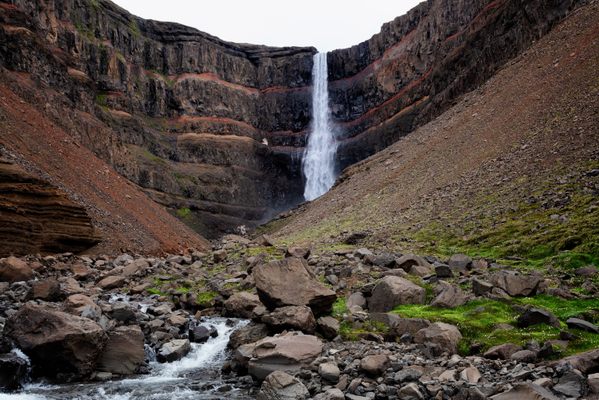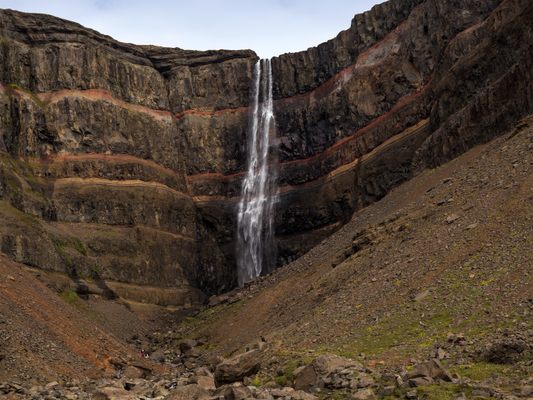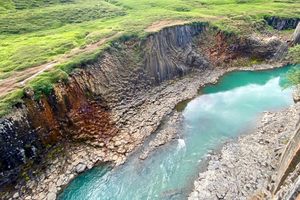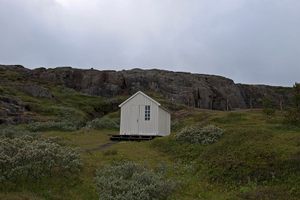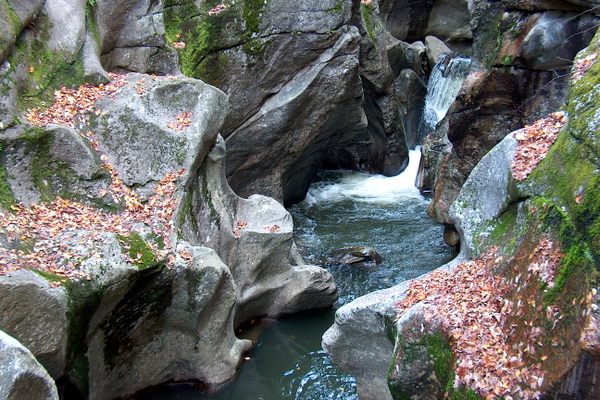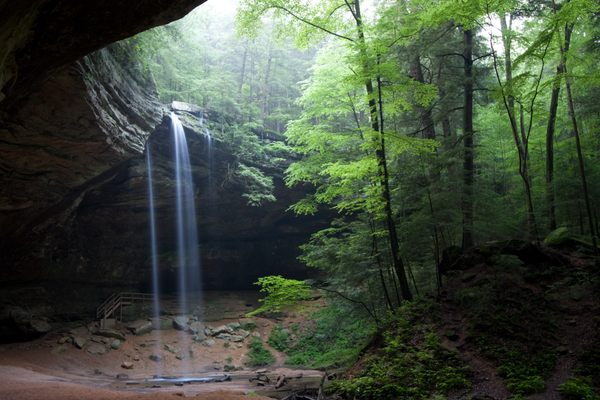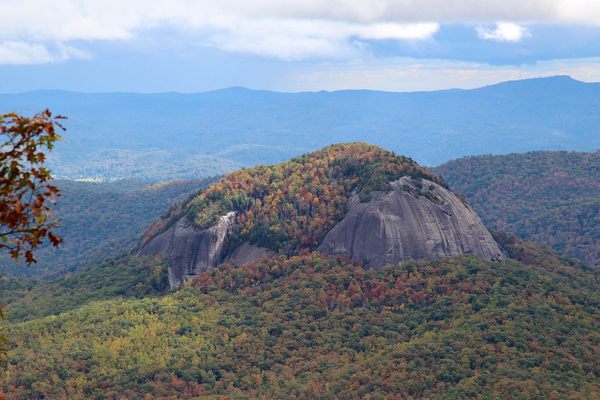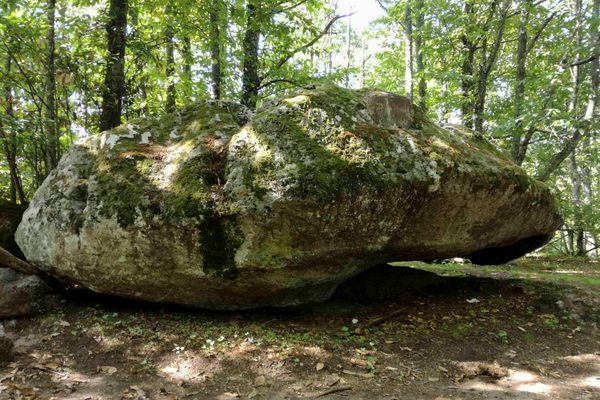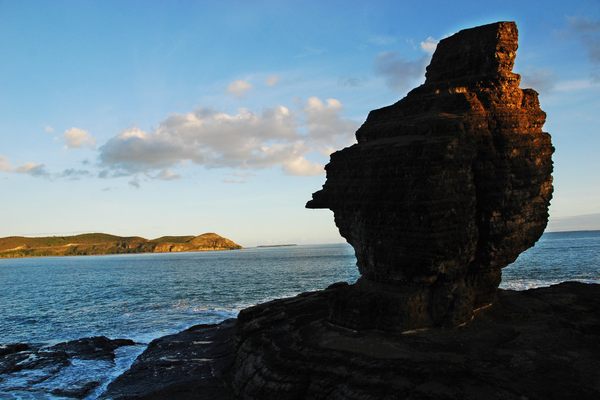About
It may be the third tallest waterfall in Iceland, but it’s not the breathtaking height of Hengifoss that motivates explorers to trek an hour and a half uphill to see it. People head to this natural wonder to admire the horizontal stripes streaking across the rock behind it, which form something resembling a strange, multilayer lava sandwich.
Iceland was and is to this day a volcanic hotspot. This volcanic activity on the island has created impressive geological formations over the eons, and the red lines that backdrop Hengifoss are one such marvel.
Years and years ago, volcanic ash settled upon the ground in the areas of Hengifoss and eventually turned into soil, which became rich in clay and iron. When the next volcanic eruption occurred, the iron reacted with the oxygen and formed the reddish layer seen in the rock. Repeat this cycle a few times, and you’ve got a wall of black volcanic rock with red lines denoting the eruptions of the past, like a calendar of lava.
On its own, this unique rock formation would have been worth the visit, but with the added aesthetic of a waterfall pouring 420 feet down its center, this site is a must-visit destination in eastern Iceland. The hike there even features a bonus waterfall, one that rushes over a collection of hexagonal basalt columns. Formed as lava cools and hardens, these columns are commonly found throughout Iceland, although they’re perhaps most famously found at the Giant’s Causeway in Northern Ireland.
Related Tags
Know Before You Go
It's an uphill trek to get to the waterfall. There's a small parking lot near the start of the 1.5-mile trail to the falls (see here for a map of the trail). Fair warning: the parking lot fills up fast during the peak of the high season (July), but you should be able to easily snag a spot during other months. The parking lot has toilets. Wear appropriate walking shoes and be prepared for foul weather.
Iceland in Winter: Northern Lights & Geothermal Marvels
A land of folklore and myths on a backdrop of remarkable natural wonders.
Book NowPublished
September 28, 2018
